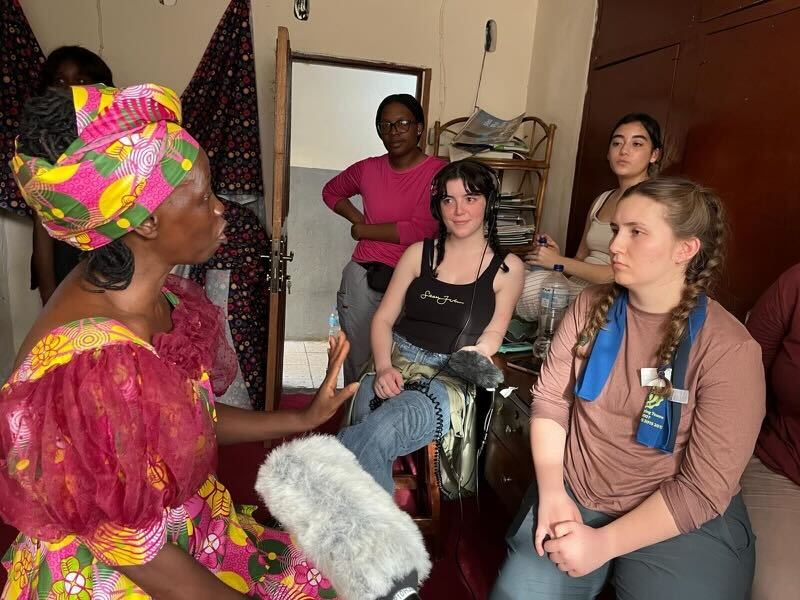Stephen Diebold won the Collegiate Inventors Competition last week with his Drop Point tool invention, which provides a new way for quadriplegics to perform everyday tasks. The University senior is the youngest and only undergraduate to win the grand prize of $25,000 at the competition.
The competition was held by the National Inventors Hall of Fame at the Museum of Science and Industry in Chicago on Oct. 20. The other grand prize winner was Harris Wang of Harvard Medical School, who invented a new way to program biological cells.
Diebold said the project originally surfaced in fall 2007 in response to a class assignment. His research partner was University alumnus Jonathan Ko, who has quadriplegia, from the division of Disability Resources and Educational Services.
The assignment was for Diebold to shadow Ko and design an object to conquer obstacles Ko experienced in his everyday life. Diebold said when performing his research, he noticed problems with tools, called pointing sticks, available to quadriplegics. One such tool was a helmet pointer, which had many straps and was visually stigmatic.
“The biggest downside besides being expensive, clunky and having a medical–look, is that it is a tool for independence, and they (the user) weren’t independent,” Diebold said. “This is the biggest issue I wanted to address — they had to ask someone to use their hands, and that was wrong.”
Get The Daily Illini in your inbox!
Susann Sears, disability specialist for DRES, said Diebold’s project was successful because he thought “multidimensionally.” She said he focused not only on its functionality but also on aesthetics.
“It’s a dignity thing,” she said. “We want to have everyday products that are not stigmatizing.”
Diebold said his Drop Point tool can be put on and removed with a shrug of the user’s chin. It also is designed for people with other disabilities that prevent them from using their arms.
The tool can be adjusted to different settings for comfort, and the acrylic materials allow the device to blend into clothing, he said. It is lightweight and low cost.
Diebold added that people with quadriplegia can spend up to $3.2 million for their disability in the course of a lifetime. He said his tool could lower this cost greatly.
Deana McDonagh, associate professor of industrial design, was the instructor for Diebold’s sophomore studio course where Diebold first developed his idea.
“As the instructor, I focused specifically on the needs of people with disabilities, as part of my Disability plus Relevant Design research work,” McDonagh said in an e-mail.
She said she was impressed with the outcome of the project.
“The pointer is a relatively low technology outcome, which provides a tangible way to improve the quality of life for the target user,” McDonagh said. “This is only the beginning of what promises to be a very meaningful design career.”
Diebold said he strived to accommodate the users of the product and to ensure that they have a sense of pride and enjoyment when they use the tool.
“Whenever you’re making your invention or next big design, to you it just may be a tool, but for those who are using it, it could be a way of life,” he said.
A patent for the tool is still pending.









